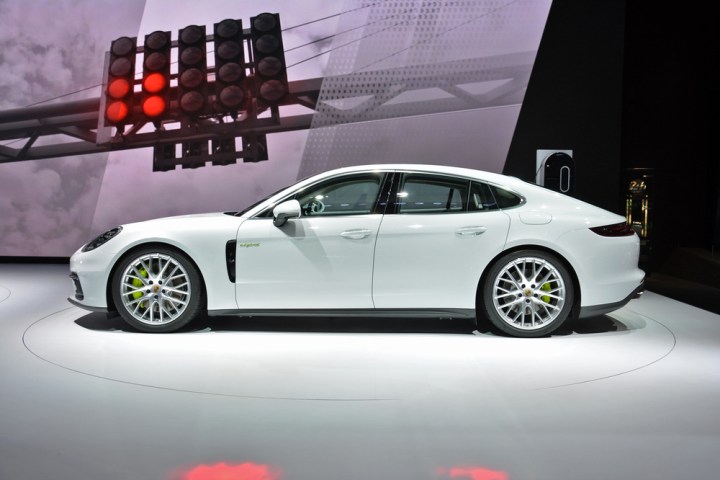
The Panamera hybrid combines a traditional engine with electrical propulsion, and has seen rapid growth. The company’s output of Panamera hybrids has doubled over the past 12 months. All in all, Porsche expects to produce about 8,000 of the hybrid sedans this year.
Gerd Rupp is head of the Porsche plant in Leipzig, Germany, where the Panameras are produced, and he said the company may face supply issues in the future. Porsche is keeping up with consumer demand, but there are limitations, due to the inability of battery manufacturers to make enough batteries. Rupp did acknowledge that the increased demand took Porsche off-guard as well.
“As a buyer we had originally projected different volumes (of battery systems needed),” Rupp told Reuters. “The effects can be seen in longer delivery times of currently 3-4 months for Panamera hybrid models.”
Since 2015, Porche’s parent company, Volkswagen, has been investing heavily in new automotive technologies, including self-driving cars and electric vehicles. Development of hybrid and electric vehicles in particular have become especially important as the EU is set to impose fines on auto manufacturers that do not improve their emission standards. By way of example, Audi recently announced that it might be facing one billion Euros worth of fines if it fails to meet EU’s emission standards.
Porche, one of Volkswagen’s most profitable brands, is investing about 1 billion euros in electric vehicles, including the Mission-E, its first purely electric car. The company is also considering a battery-only version of its popular Macan SUV.
Despite this increased investment, the one thing may delay the production of the Mission-E and other electric cars are the lack of skilled engineers needed to build them. Both traditional automakers and tech giants such as Google are working to create self-driving cars. In order to address the lack of skilled labor, Rupp says that Porsche has opened a new training center in Leipzig, where it will train current staff members to meet the changing demands of the auto industry.
“It’s becoming increasingly more difficult to find the right experts,” Rupp said. “We cannot completely rely on the open job market.”


